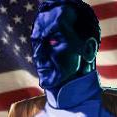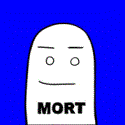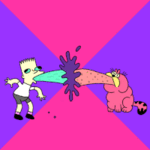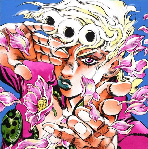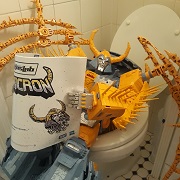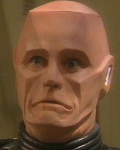|
jng2058 posted:I dunno, why would we treat Thirteen any different than we did Missy? I can't find a single instance of our referring to Missy as "they", nor did the reviews (here or elsewhere) seem particularly hurt by the fact that there were so many Masters before we got to the Mistress. Hell, "Doctor" is a gender neutral title, even. We're already in the habit of referring to the incarnations of the Doctor as distinct entities, especially in the multi-Doctor events, so if you want to refer to Four or Ten you say "he", if you refer to Thirteen you say "she", just as Missy is "she" while the Delgado or Simms Masters are "he". LTW is concerned because he likes to make big sweeping Statements about the mythos of the show, talking less about the individual Doctors and more about The Doctor as a concept or entitiy, which means that once that entity's gender becomes non-fixed, it's harder to use the gendered pronouns in such statements.
|
|
|
|

|
| # ? Apr 26, 2024 07:30 |
|
Lick! The! Whisk! posted:So yeah, there's just no easy out, and I totally share Moffat's frustrations. I'll probably switch to they and their next season, but I won't like it and I already know it'll make my writing read worse. It's pretty loving annoying. Well, the easy way out is to say that using "he" and "him" to refer to the Doctor all this time may have been just as invalid as it would be post-regeneration. Personally, I would default to "she" and "her" to refer to all the Doctors starting with 13 and I'll be sorely tempted to keep that up even if 14 is played by a man. The other alternative is to use the appropriate gender for a specific Doctor but refer to the character generally according to the gender of the present occupant.
|
|
|
|
Jerusalem posted:I think the idea (and again, this is all my interpretation, based on that very brief bit of info we get so incredibly late in the episode) is that they built these things and then basically left them to run while the ship traveled through space with the crew in suspended animation. Once they landed on the planet and pulled a few support crew out, the Vardy had been running so long that they'd started to develop at least the basic germ of consciousness - complicated learning machines running in concert together in isolation/being exposed to stimuli for long enough that something started happening. But then the support crew are there and the Vardy don't quite grasp how to reconcile their core programming/how to understand how humans work differently to themselves. Which, again, is why I think it would make more sense for the Vardy to have grasped the concept of grief and realized for themselves the mistake they'd made, as opposed to the Doctor seeing them demonstrating emotions outside of their limited reflection of the humans around them and then wiping their memories to reset the field. Yeah, that sounds like a much stronger idea. They could have either done that, or idonotlikepeas's suggestion about a simple error in their ethics logic, or perhaps an incredibly skilled writer could have mixed the two into a satisfying and clever ending. As it is, we suddenly have The Doctor just saying a bunch of stuff and swanning off because it's been about 45 minutes already.
|
|
|
|
Hemingway To Go! posted:Coming to think, they probably wanted to end on the settler/native analogy they had in mind and teaching the robots grief might put too much guilt on the robots side or something? Pronoun error: there is the 'they', there is only 'him' (or 'her', but in this case 'him'). UK TV doesn't have writers's rooms, it has writers desks, or sometimes a shed. 99% of writers have never written a science fiction story. They are pretty tricky technical feats to do well; you have to have something that both makes internal sense, and simultaneously works on an emotional level to people who don't live in that society. And even if you get it right, plenty of viewers and critics will disagree, because following such a dual work is a learnt skill. Which is why most writers stick to contemporary realism, where the facts and meaning align, or the type of fantasy where there are no requirements for internal consistency . Frank Cottrel-Boyce obviously has the ambition to try, and if he gets another chance, there is enough progress between his two attempts that a third one might well succeed.
|
|
|
|
Next season of Who will have an American style writer's room, jsyk. So all that stuff Occ said forever ago will actually become relevant
|
|
|
|
In the show Capaldi switched genders mid sentence when talking about the Master depending on which regeneration he was referring to. But yeah, I can see how that would be a loving nightmare when writing extended amounts of prose, for both the writer and the reader. I'm a bit ignorant of this subject, but isn't there some real world parallel here? Whenever I hear anyone, either in private or in the media, talk about someone transgender, they always refer to them by their current, identified gender, even if they are referring to something that happened before they transitioned. I don't see any problem with referring to Thirteen as female, even when talking about past regenerations. I've never understood why we use the same words 'They' and Their' to refer to both 1 person and several, let alone different genders. Drives me up the loving wall.
|
|
|
CityMidnightJunky posted:In the show Capaldi switched genders mid sentence when talking about the Master depending on which regeneration he was referring to. But yeah, I can see how that would be a loving nightmare when writing extended amounts of prose, for both the writer and the reader. I agree with you to a point, but, as has come up recently in another Who thread, the Doctor is a bit of a different case. A regeneration, in a way, creates a new person, a specific identity. It's like 10 said, you die, another bloke walks away in your place. So when referring to previous incarnations specifically (as in "He was rather vain and regenerated into himself...") I can see using the gender of the incarnation you were referring to. Neither approach is really wrong, though. And yeah, all options are better than "they" and "their". They work when there's no other choice (you don't know the sex of someone you're referring to), but I just don't like them unless absolutely necessary.
|
|
|
|
|
To paraphrase Winston Churchill, singular they is the worst form of English gender-neutral pronoun except for all others which have been tried from time to time. The only other options people have proposed are constructed words, which sound even less natural, and compounds like "he/she" which a) are not to be borne grammatically and b) cover only those two options. We've literally got examples of Shakespeare using singular they if anyone is worried about the historical antecedents, and, frankly, it'll stop sounding weird once we've all done it regularly for a generation or two, so it's probably best just to roll with it. On another note, we're heading up to the weekend, so remember to get me your votes if you haven't already!
|
|
|
|
I read somewhere a while back that in the 17th or 18th century there were people who tried to introduce "thon" (a contraction of "that one") as a gender-neutral singular pronoun to replace the singular they. As you probably know, it didn't catch on.
|
|
|
|
I may or may not be playing Pyre obsessively, so the review may or may not be late.
|
|
|
|
I remember this thread. You all a bunch of weirdos. Godspeed. Doctor Who is bad/good.
|
|
|
|
*googles* yep that looks like exactly the type of game Occ would get obsessed with
|
|
|
|
I don't know anything about it beyond the people who made Bastion and Transistor made it, and I really enjoyed both those games so I'd probably enjoy this one too.
|
|
|
|
It's a magical basketball simulator party-based tournament RPG visual novel that happens inside and outside of a book but also in a prison where literacy is a superpower and an unforgivable crime. Hope that helps.
|
|
|
|
It's the sequel to Barkley Shut Up and Jam Gaiden?
|
|
|
|

|
|
|
|
Jerusalem posted:I don't know anything about it beyond the people who made Bastion and Transistor made it, and I really enjoyed both those games so I'd probably enjoy this one too. It's probably their best game although I have Some Issues with the ending.
|
|
|
|
Lick! The! Whisk! posted:It's probably their best game although I have Some Issues with the ending. I have so many games to play  Still I just finished Wolfenstein: The New Order which was fun - it's always extremely cathartic to kill Nazis.
|
|
|
|
Jerusalem posted:I have so many games to play I felt very dumb when I realised why the sequel is called The New Colossus. It's the name of the poem BJ recites at the end of The New Order, about the Statue Of Liberty, and the new game is set in Nazi America
|
|
|
|
I saw that trailer before I played New Order and it looked awesome but made no goddamn sense. Rewatching it after playing the game I was surprised at just how much sense it actually makes!
|
|
|
|
hey i've been skimming through the old threads and i have an important question did DocWhat ever start reviewing Homestuck?
|
|
|
|
nope. I burnt out immediately plus I got depression. Maybe I'd be better at it now, but nah.
|
|
|
|
Ok, that's fair enough. I would have enjoyed reading it if you did, but yeah, that's perfectly understandable.
|
|
|
|
Review will be up today, this I promise.
|
|
|
|
Lick! The! Whisk! posted:Review will be up today, this I promise. Just in time to start watching the next episode! 
|
|
|
|
Have you watched S36E03 yet, though?
|
|
|
|
all-Rush mixtape posted:Have you watched S36E03 yet, though? Not when I wrote it. However...https://en.wikipedia.org/wiki/Thin_Ice_(Doctor_Who) In which Toxx thought of like fifteen different "thin ice" and "fishy" puns before deciding to embed a Foreigner song. https://www.youtube.com/watch?v=mjwV5w0IrcA
|
|
|
|
Puns? You probably would have gotten a pretty frosty reception.
|
|
|
|
Doctor Who "Thin Ice" Series Ten, Episode Three So, I guess Series Ten is meant to be a soft reboot for Doctor Who, in the same way that Series Five was. In Series Five's case, however, it was a decision that made a lot of sense; after four to five years of stewardship under RTD, who himself rebooted DW with Series One and the Time War, Moffat takes over showrunning duties. He changes virtually everything about the program, from the person who played the titular role down to stuff like the video quality, giving the entire production a modern, vibrant look that ages far, far better than anything RTD made. DW turns from a no-budget British children's TV show to a low-budget cable drama, with a far larger emphasis on serialized storylines, seasons-long arcs, and the sort of televistic outlook pioneered by American television during the mid-2000s. DW was a distinctly different beast under Moffat, so it made sense when he soft rebooted it. Nearly every single element of RTD's Who is not present in Moffat's in Series Five, so Moffat's decision to treat that season as an onboarding point for new viewers makes sense. It's a clean break, so as a matter of course having Eleven explain to Amy his whole deal, the tried-and-true "new Companion interacting with new Doctor" stuff, the "Companion goes to distant past and far future" episodes after her onboarding, and so on - it feels necessary. There is a brand new showrunner, Doctor, and Companion(s), and we haven't had that trio since RTD first took the helm during a season that itself was a reboot. So the repetition of the themes and leitmotifs that define Doctor Who feels necessary, and earned, in addition to the fact that we're seeing these base concepts through the lens of Moffat's influence, in direct counterpoint to RTD's. The entire notion feels exciting because it's new, because it's a different perspective than what we're used to. And, therefore, it's engrossing, even if the underlying ideas are themselves tired. I don't know why exactly they're doing it here in Series Ten. It feels completely superfluous and I have zero idea why Moffat et al felt the need to treat Series Ten as a wholly new thing. It feels like a gimmick that wasn't thought through at all, sorta like how Series Nine was inexplicably and unnecessarily the season of (mostly bad) two-parters. Like, who is the reboot for, exactly? I know that in the timeline of the production of DW, it's been a little over a year since the last DW episode aired, which was itself a bad Christmas special. So on some level I sort of, kind of get approaching Series Ten with the perspective that maybe the audience has gone away, or doesn't exactly remember how DW "works" (even though, to be honest, it's got one of the simplest high-concepts for a TV show ever - "Alien in magic box solves problems in the universe with spunky lady by his side"), but on the other hand everyone who's watching DW is watching it for the long haul. From what I understand, DW is basically Britain's version of Star Trek in America in the sense of its memetic influence on the culture of the country. Like, you may hate DW as a Brit, you may have never seen an episode, but it's so deeply and specifically a British production that you've attained a knowledge via osmosis of what DW is, the exact same way every American knows what Star Trek is. I do not think I've literally ever seen an episode of Star Trek outside of some episodes of Enterprise as a teen, which I don't remember, but I could hum to you a couple of bars of its most iconic theme, its general conceit, name off a bunch of major actors and most Starfleet Captains, tell you the structure of most episodes, and so on. It's a part of the fabric of American society in, I assume, the exact same way DW is a part of Britain's. So again, I ask: Who is this soft reboot for? Who does this benefit? British people have specific cultural knowledge of DW, and if this was a move to pander to/get new American viewers I don't see why. It airs on a cable network that isn't in most packages, in the high hundreds, that itself isn't insanely popular. I mean, it's a decent audience in America, don't get me wrong, but from all of my impressions of who American DW fans are they're either diehards or part of the generation who is internet-fluent. Onboarding and soft reboots aren't necessary for those people because there's about a billion different ways (Netflix, most notably) to catch up on the backlog, and that's how that subsection of people consume television nowadays. They browse wikis, bingewatch through any of a myriad number of streaming services, and read AV Club reviews. That's how television is consumed now, especially by the people who DW most appeals to - Millennial or younger people who grew up with the internet. It's not Game of Thrones or The Walking Dead or any of a myriad number of CBS procedurals, DW hasn't penetrated the American zeitgeist in the way that those other shows do where everyone watches them, so this idea of marketing Series Ten - whose most notable new addition is a gay Companion, which doesn't exactly grab headlines - as a way for new viewers to get interested in the program is both puzzling and bizarre. It makes the least sense because of Twelve. If there was a new person playing The Doctor, if Capaldi had regenerated in Series Nine, okay, this reboot perspective would be at least somewhat justifiable. But it's not, and presenting Series Ten as a great way for new viewers to be interested in DW all over again is incredibly disingenuous because this is the end of Twelve's story. Twelve is in his third act, closing out his time on Who. His personality has gone from "insufferable prick" to "wise old mentor", and that personality change and how it's happened is the best throughline of Capaldi's time on the show. Jumping in now, where his arcing is ending, without seeing Twelve go through that change, robs it of its impact. Twelve is an interesting character because Capaldi is a great actor, but Series Ten Twelve becomes something special when you see what he does through the lens of Clara's influence on him. Without it, he's a sort of vaguely interesting but cliched mentor character, which itself looks kinda sexist and/or racist when viewed in the context of him constantly mansplaining to a woman of color how everything works because she just doesn't get it. The context is what makes Series Ten Twelve so delightful, and you don't get that if this is your first season watching DW. So, again: Who is this soft reboot for? I wouldn't be complaining about this so much if it already feels like the season has been so hamstrung by its bizarre insistence to be an onboarding point for new viewers. "Thin Ice", in the abstract, in a solely empirical sense, is a good episode of DW. But I found it boring and repetitive simply because every single moment of it felt like it was treading similar ground to stuff DW, and Moffat specifically, had done before. This was a trend started by "The Pilot" and continued with "Smile", where "The Pilot" feels like "Rose" redux and "Smile", most egregiously, feels like a grab bag of every single horror-episode Moffat had written in addition to being incredibly thematically and aesthetically similar to "The Girl Who Waited", whose climax it (ineptly) cribbed. "Thin Ice" comes across as "The Beast Below" Mark II with typical "new Companion can't deal with The Doctor being an alien" drama thrown in. So we get the monster of the episode beng some sort of enslaved gigantic sea creature who is somehow being tortured to manufacture energy for some version of Britain, whether space or past, and the episode boiling down to a climactic moralistic choice by the Companion that ends up "saving" The Doctor. And, to be clear, none of it is bad. It's actually quite good; the highlight of "Ice" is in its first act when Bill confronts The Doctor about his seeming careless disregard for the loss of human life. The Doctor's response of him not being afforded the "time" to be outraged doesn't come across as either an excuse, justification, shield, or lie, but as more of a pragmatic reality of his function within the universe of Who. This question of The Doctor's insensitivity towards the dead has been brought up many times, but with Twelve it's the first time his uncaring nature doesn't feel like a defense. It plays into the concept of "The Doctor as overt teacher", where he recognizes and absorbs the awful truth of what's happening without it paralyzing him, but doesn't cheapen Bill in exchange. Her line later on of having "moved on", combined with Twelve's wondrous speech when captured by Sutcliffe (Nicholas Burns) about the value of a human being in how they treat the smallest and most unimportant life, makes their confrontation a rarity in Doctor/Companion arguments - neither side is wrong, but they both value the perspective and empathy inherent in the other's viewpoints. I feel, more and more, like I'm turning into the worst sort of DW fan, the awful pedantic oval office who can't stop endlessly whining about how "X did it better" or "Y is just Z but different". But, I can't ignore my feelings about this season so far and "Thin Ice' in specific; it all comes across as very repetitive and samey, and even when it's good it feels good because its either an echo or callback to something I've already seen, marginally improved. So even though Pearl Mackie is fantastic as Bill - and, boy oh boy, is she, Mackie is loving crushing it - and Capaldi is wondrous as Twelve and Sarah Dollard's script is pretty great, it just all felt so very similar to what I've seen before on Moffat's Who. I come to Who, as I've mentioned in the "Last Christmas" review, not because it's good, and not because it's consistently good. Because it most certainly isn't either. I come to Who to be surprised, whether or not that surprise is good or bad. I come for daring, interesting, and new television. I come for the originality, even and especially when that originality completely fails to coalesce into something watchable. So Moffat taking the, in my opinion, completely unneeded tack of reintroducing a bunch of concepts DW has gone over a million times before under the pretense of it being a "soft reboot" is exactly what I don't want. It's also not helped by the episodes so far feeling like various writers took old Moffat scripts and changed some words around until they wrote a new one. Maybe if DW ran for American network TV show seasons, maybe if I didn't know for a certainty that Chibnall was taking over next season and going to do this entire loving "soft reboot" song and dance all over again, maybe if the episodes themselves didn't feel, at least to me, so very similar to previous Moffat and DW episodes, both in aim and in execution. But as it stands we're a quarter of the way through Moffat's final season ever on DW and it all feels like poo poo I've seen before, slightly repackaged to look just different enough so it can be sold to the, I suspect, fantasy audience that is "new viewers". This is not what I wanted from your final act, Moffat. I wanted a magnum opus and I'm getting a reunion tour, and playing all the greatest hits all over again just seeks to impress on me how old Moffat Who looks now. Grade: B Random Thoughts:
|
|
|
|
Thin Ice Sometimes, when you feel an urge to make ice-related puns, it's important to know when to let it go. A bsam Llab Rochallor The_Doctor WeirdSandwich B 2house2fly adhuin all-Rush mixtape And More AndwhatIseeisme Big Mean Jerk Blasmeister cargohills jng2058 Red Metal Senerio C Stabbatical thrawn527 Wolfechu D No-one got snowed. F Nobody could ever be this cold. Overall Average Guess: 3.1 (B) Standard Deviation: 0.6 Current rankings: all-Rush mixtape: 1 cargohills: 1 jng2058: 1 Big Mean Jerk: 2 Llab: 2 2house2fly: 3 Red Metal: 3 The_Doctor: 3 thrawn527: 3 adhuin: 4 And More: 4 AndwhatIseeisme: 4 Blasmeister: 4 Senerio: 4 Stabbatical: 4 WeirdSandwich: 4 Rochallor: 5 Wolfechu: 5 bsam: 8 Back to three leads! I think people may finally be getting the hang of reading Toxx's mind; the results are pretty decent this time around. Of course, a few people are getting frozen out. idonotlikepeas fucked around with this message at 06:18 on Aug 1, 2017 |
|
|
|
Year Of Specials is a pretty good comparison to draw, since that's basically what series 10 is. RTD and Moffat both did big blowout finales with the expectation of leaving right after, then both had to hang around another year for whatever reason. With a regeneration story at the end. Still, like they say, accentuate the positive: an advantage of having episodes with similar plots is seeing how different characters react to similar stimuli. Capaldi turning to Bill and asking what to do vs Matt Smith taking it upon himself to solve everything, etc. It actually hadn't occurred to me to go back and compare this and Beast Below before but I might have a go Fun fact: Sarah Dollard specifically omitted naming the creature, which Moffat seemed thrilled about in an interview.
|
|
|
|
Again I was simply glad to get back to simple stories that were fun to watch after season 9, with new doctor companion team without any baggage, and I had recommended this season to others after watching this far based on that. I think there's no real purpose behind the reboot, this is just the situation they landed in with one Capaldi season left but no companion. The other way they could've gone is overcomplicate things with a companion with some knowledge of the doctor and past adventure experience so they don't have to go through time travel adventures 101, possibly expand some past plot lines, and make a really overcomplicated season? A reboot season for the end of a showrunner, that's going to be followed by another reboot's kind of stupid but I don't really see another option here.
|
|
|
|
idonotlikepeas posted:
You fuckin' son of a bitch idiot. Go away. I liked it better when you were gone, and not here. NieR Occomata fucked around with this message at 05:32 on Aug 1, 2017 |
|
|
|
I don't get it. Why am I coming last.
|
|
|
|
BSam posted:I don't get it. Why am I coming last. Because you're not as smart as me.
|
|
|
|
Everybody, chill.
|
|
|
|
It's tough, because I absolutely agree that a soft reboot feels like it wasn't really required AND it's going to be followed by another reboot of sorts next year when Chibnal and Whittaker arrive on the scene. But on the other hand, I can't really complain when even an "average" episode like this just feels like it gets most everything about it right. This episode, as mentioned, retreads a ton of ground already gone over by RTD and Moffat but at no point did I feel like "I've seen this all before, get on with it", I was just enjoying seeing it be done so well. Part of the appeal is that Capaldi and Mackie just work so well together, plus just like last episode there is a wonderful bit of what feels like pointedly left wing pleasure in saying,"Yo, gently caress racism." I mean, that's not (or shouldn't be) a contentious POV but it was kind of awesome to see the Doctor, a character of words and reason, who when confronted with flat out racism and the insulting of his friend reacts by punching the rear end in a top hat right in the face
|
|
|
|
The introduction of a new companion in the revival-era Doctor Who usually unfolds in a fairly straightforward way. The Doctor meets a new Companion in the present day, and they share an adventure before the Doctor invites them to join him (Rose, Smith & Jones, Partners in Crime, The Eleventh Hour, The Bells of Saint John etc). Then over the following couple of episodes, the Doctor takes his new companion to the future and the past. Sometimes it is the past first, then the future. But the general idea is to introduce the companion (and any new viewers) to the possibilities of the TARDIS - past, present & future - in those first three episodes. Thin Ice continues this tradition, as well as the continued parallels between season 10 and season 1. The Doctor saved his new companion from an odd, human-looking enemy, then took her to a far-flung future to prove that in spite of even the loss of their planet humanity survives, and then back they go to the 19th century. For Rose it was Autons, the year 5 billion and the Victorian era, for Bill it was the Pilot, a human colony following earth's evacuation, and the Georgian period. But while the similarities are obvious, there's a little more going on to this story, which on the surface is an enjoyable if ultimately standard episode of Who. A little deeper however, it's a rather welcome refutation of some of the critiques that have faced both the show itself as well as other media depictions of the age, and even the recording of history itself. Having failed to land back in his university office in the 21st Century, the Doctor has brought Bill to London in 1814 and the last Frost Fair. He reminds her that his piloting of the TARDIS is more of a negotiation, and admits that he's not a very good negotiator - they've been brought here for a reason so he's going to enjoy it. Here we get an interesting inversion of the conversation between the 10th Doctor and Martha Jones in The Shakespeare Code. Martha was concerned about fitting in as a black woman in the Elizabethan era, and the Doctor rather blithely told her to just act like she belonged because that always worked for him. A fine notion, but coming from a character that has traditionally been a white male it felt a little tone-deaf. Here, the 12th Doctor rather nicely puts a different spin on it, having fun with Bill's concerns about changing the future (he makes up "Pete" who stood on a butterfly and ceased to exist). But then when she notices that that there are more black people about than history/media has lead her to believe, the Doctor makes a neat comment about Jesus being black too, and that history is a whitewash. It's a good line, a welcome one, but it still runs the risk of ignoring the ugliness of the past with a minor platitude. Happily, this isn't the last we get on this subject in this episode.  The Frost Fair, beautifully recreated, masks darker things going on beneath the surface, figuratively and literally. Children living rough try to steal from the Doctor, and pilot fish beneath the ice attract stragglers to feed to a (really) giant creature beneath the surface. There is an initial air of frivolity as the Doctor takes Bill through the attractions and argues amicably with a pie salesman, but things get dark quickly after a small boy gets hold of the Doctor's sonic and runs off onto the ice. They give chase as the pilot fish follow the isolated boy, and when the Doctor fails to get to him in time his reaction of grabbing his sonic from the corpse of a child (!) horrifies Bill, and with good reason! The death of a child is a surprising thing in Who, it's often suggested but then walked back from. That it just happens in this episode and they're left to actually deal with the fallout is a nice change. Bill, who has just watched a child die in front of her, can't believe it or accept it. In her shock she demands the Doctor deal with it, as she considers with disgust that his first thought when he saw the death was to grab his sonic. It leads to a great scene where she demands to know how much death the Doctor has seen, as well as coming to the realization that this funny, quirky, eccentric old man has also killed people - a lot of people. His attempts to justify why he "moves on" works, both because it is delivered excellently by Capaldi and also because, while at first it sounds pragmatic and sensible, we know that it's a line basically set up for the Doctor to overturn himself at some later point in the episode. The Doctor posted:You know what happens if I don't move on? More people die. There are kids living rough near here. They may well be next on the menu. Do you want to help me? Do you want to stand here stamping your foot? Because let me tell you something. I'm two thousand years old, and I have never had the time for the luxury of outrage. The kids living rough are designed to contrast with the spectacle of the Frost Fair, the darker truth underlying the sparkly facade. Of course they're all adorable and sweet because this is television, and ironically they create a larger issue with my suspension of disbelief than the giant fish-creature living beneath the Thames. But their purpose is to drive the story forward as well as help bring Bill and the Doctor back onto the same page. Seeing the poverty they live in, learning they're involved with the person heavily promoting the fair and suspecting he may have something to do with the creatures killing people, Bill comes to the conclusion she needs to help, and that means she also needs to "move on". This leads to a sequence that doesn't quite work, as the Doctor and Bill put on old school diving suits and head out onto the ice at night to draw the attention of the pilot fish. When Bill is pulled under, the Doctor follows, and they come eye-to-eye with the creature. Why it doesn't eat them like it ate everybody else the fish pulled under is a mystery, that's the entire reason the pilot fish pull people under in the first place - perhaps because they were still alive and it only eats the drowned. In any case, it's not like "the Beast Below" from the episode of the same name, it has no compunction with eating children, as the discovery of the little boy's hat under the water demonstrates. The CGI isn't particularly good, though I've seen far worse in other shows AND in prior episodes of Doctor Who, but it's where the episode is at its weakest. Happily, much like the previous two episodes the idea quickly gets established that the "monster" is anything but. Yes it eats people, but it's not a predator that has come to hunt humans - somebody has chained it down beneath the Thames. Somebody is drawing people to the Thames to be eaten by it. The question is no longer "What is the creature?" but "Who put the creature there? And why?" The running theme of the season so far seems to be that things are never quite as they first appear, that what we consider a "monster" may just be misunderstood. An encounter with the pie-man from earlier (he is catching pilot fish and putting them into his pies, much to Bill's horror), in conjunction with info they got from the urchins, gives them the lead they need. They travel to a workhouse where dredgers are collecting what looks like mud. Rather than sneaking around, the Doctor just uses the psychic paper to convince the overseer they're people in authority. Bill joins in with the Doctor as they convince the overseer they know everything that is going on, using the information he inadvertently provides to bolster their bluff. It's a fun bit of back and forth, as the Doctor plays on the overseer's desire for recognition/respect and we learn that somebody called Lord Sutcliffe has them dredge up the "mud", turn it into bricks and send it to the steel mill where it burns "a thousand times longer than cold, hotter than they can measure" and even burns underwater. Bill, whose reaction to learning the "mud" is excrement is hilarious, even manages to get in a,"No sh-" joke before the cut to Sutcliffe House. Everything up to this point has been perfectly enjoyable but also just your basic, standard episode of Who. There have been a few character and dialogue moments that have been very good, but the basic plot hasn't demanded much. The following scene is probably largely what I'll remember most about this episode, and reminds me a bit of the brief anti-colonialism message from the previous episode. The Doctor, who doesn't have the luxury of outrage, sternly reminds Bill that they're on a mission here, that they have to play a part and they can't afford to be outraged, to lose their tempers - he effectively tells her to shut her mouth and let him do the talking, because he is the one who can be pragmatic and not let his emotions get the best of him. The Doctor posted:You're about to meet a man, alien or otherwise, for whom human beings are raw material. Who grinds up children for profit. What we are here for is one thing. Information. We get that with diplomacy and tact. Charm, if necessary. So in walks Lord Sutcliffe, a self-important little poo poo who is unctuous towards the Doctor because he believes he represents a Gentlemen's Club, then turns nasty the moment he sees Bill present and seated. A woman, a BLACK woman at that, inside of his house sitting in his furniture!?! He berates the bewildered woman for her impertinence, calling her a creature. The Doctor, a man of words and reason who despises the notion of violence, a man who understands the importance of their mission as well as the prejudices of the time, responds completely appropriately:  Hell yes. Yeah history is blacker than we're told, but the problem with an episode like The Shakespeare Code is that it introduces the very real concern a black character has about being in the past and then handwaves it away and it never has relevance to the episode again. In this episode, the Doctor notes Bill won't be out of place because history is white-washed and most of the people they're going to meet are used to black people being about/aren't particularly fussed. But it doesn't shy away from the fact that there was a shitload of very ugly, very entrenched and very accepted racism in that society. Especially in a class-based society where the elite already believe they're naturally better/superior to the lower classes even BEFORE race comes into the equation. Taken prisoner by Sutcliffe's men, the Doctor still takes advantage of the situation to get a little more information from Sutcliffe. He suspected alien involvement, but Sutcliffe is very human, and he doesn't know anything more about the origin of the creature than they do. It's the source of his family's wealth, it's been present in the Thames for centuries and the secret is passed down from Lord to heir. The creature causes the frosts periodically, they use that excuse to hold frost fairs and get people to feed it, then collect its excrement and use that to fire the mills that produce the steel that generates their wealth. With utter disdain he rejects Bill's accusation that he is killing people, justifying his actions by saying more would die working in the coal mines he'd operate if the creature wasn't there. The Doctor knows he's paying lip service to this concern though, and makes an impassioned speech (to which Sutcliffe has a wonderfully slimy retort) about marking human progress by empathy. For all that I've praised the above scene, Sutcliffe is by no means what I'd call a particularly deep character. In fact he's really quite shallow, almost a parody of the sneering, contemptuous upper class rear end in a top hat who doesn't value human life. But I also think given the length of the episode and the message it was going for, spending any more time on trying to give him a sense of depth would have just muddied the waters. In a day and age where some particularly nasty stuff that just barely skirts under the line of outright racism/fascism is being blurted out into the world constantly, and the people blaring it out are insisting on the unfairness of people not giving equal weight to their lovely views... well it's nice to have an episode where the rear end in a top hat who claims black people are "creatures" and that feeding inferior people to fish monsters is necessary for the furtherance of the Empire is shown to be exactly what he is, a lovely person with lovely opinions. His ultimate fate is perhaps a bit too cartoony, but given what a relentless rear end in a top hat he is, the poetic justice of his death is nicely cathartic - he fed people to the creature to stay rich, and his greed saw him suffer the same fate. Black, white, upper or lower class, anybody who gets eaten by a giant fish-monster is gonna end up coming out the other end as the same old poo poo.  Caught in a tent as Sutcliffe prepares to crack the ice and cause the death of dozens to feed his captive, the Doctor and Bill try to use the Sonic to escape. This draw's Sutcliffe's henchman in and we get a parallel scene to the little boy's death at the start of the episode. Here somebody's theft of the screwdriver proves their undoing, and once again the Doctor's priority once he sees death is certain is to get his sonic back. The context has shifted of course, not least of all because it's a full grown man rather than a little boy, but also because both Bill and the Doctor have no choice but to move on - there are lives to be saved. They successfully warn people off the ice with the help of the urchins, while the Doctor concerns himself with saving another life that Bill herself hadn't considered. As she gets humans off the surface, the Doctor dons the diving suit once more and moves the explosives to the chains holding the creature. When Sutcliffe blows them, he releases his captive and ensures his own demise, while Bill - who came looking for the Doctor - is saved by him and they watch the creature disappear down the Thames, having learned after centuries of captivity to stay the gently caress away from humans. That last part feels more like "gently caress it, we're running out of time" though, and another indicator that the actual "monster" was incidental to a story primarily about the victims of a society that assigns different values to human life based on class and race. Bill brings the urchins to Sutcliffe House, where the Doctor is doing some careful adjustments to Lord Sutcliffe's will - and they even get a jab in about male dominated society - in order to make the surviving boy urchin into Sutcliffe's long lost heir. They return to the present and the Doctor's office, where an excited Bill tries to find any information she can on a giant fish during the last ever frost fair, but discovers nothing in any historical records. Happily there are records on the Sutcliffes, as they learn that young Peregrine "Sutcliffe" was found in a court of law to be the dead Lord's legitimate heir and the revised will was accepted. Those particular urchins at least ended up with a place to stay - though who the hell knows how the Sutcliffe businesses fared. Nardole appears with some tea, mere minutes having passed since he last saw them, and discovers them in their 19th Century clothing and quickly grasps what has happened. He is (comically) outraged with the Doctor - "this is beyond unacceptable.... this is naughty!" - but the Doctor dismisses his concerns and his reminders about his mysterious oath. So Thin Ice ends - a perfectly fine episode that is probably going to end up largely forgettable. It does everything fine apart from some ropey CGI, has gorgeous set design, and continues the same theme we've seen in the last two episodes where the "monster" was misunderstood. It follows a fine tradition established in the revival to introduce a companion (and new audience) to the show's range, and by the time it has ended it feels like Pearl Mackie has really, truly arrived. She knows the Doctor now, good and bad, and she's slotted herself into a place in his life just as he has to her. Where it'll remain memorable for me is the scene where the Doctor socks Lord Sutcliffe. It's simultaneously funny and cathartic, a rejection of Sutcliffe's outdated and nasty mindset as well as a reminder that these nasty, outdated ideas exist. Just like the Doctor mentions history being whitewashed, often on television (including Doctor Who) they gloss over these nastier aspects of a historic setting with barely anything more than lip service. It's to this episode's credit that it actually addressed these, and firmly planted the Doctor in opposition to them. Jerusalem fucked around with this message at 11:59 on Aug 2, 2017 |
|
|
|
This whole "Jerusalem reviews the actual episode, while Occ reviews a concept" thing is working out pretty good
|
|
|
|

|
| # ? Apr 26, 2024 07:30 |
|
Lick! The! Whisk! posted:You fuckin' son of a bitch idiot. Go away. I liked it better when you were gone, and not here. At a loss for words?
|
|
|









